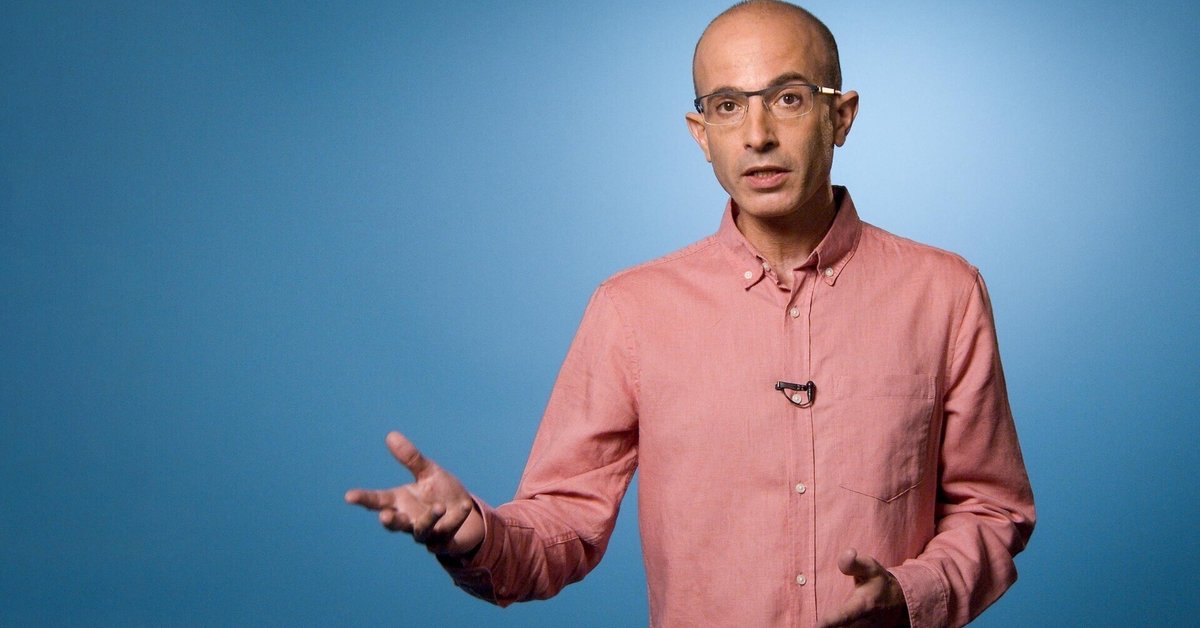
天国のバナナ-ユヴァル・ノア・ハラリBananas in heaven | Yuval Noah Harari | TEDxJaffa-1
これは2014年にTEDで行われたユヴァル・ノア・ハラリ氏のトークの文字起こしと読み下し訳です。翻訳ではありません。英文を速読するときの参考になります。
ユヴァル氏の英語は難解な単語が使われることが無いので読みやすく、速読のテキストとして最適です。また。氏の英語発音は聞き取り易いのでリスニングの教材にもなります。
70,000 years ago, humans were insignificant animals. The most important thing you need to know about our prehistoric ancestors is that they were unimportant animals. Their impact on the world was not greater than that of fireflies, or jellyfish, or woodpeckers.
7万年前、人間は取るに足らない動物でした。先史時代の祖先について知っておくべき、もっとも重要なことは、人間は、重要な動物ではなかったということです。彼らの世界への影響力は、ホタルやクラゲ、キツツキとたいして変わりませんでした。
Today, on the other hand, we control this planet. And what I would like to talk about today is how exactly did we reach from there to here? How did we turn ourselves from insignificant apes minding their own business in a corner of Africa, into the rulers of planet Earth?
一方、現在、私たちは地球をコントロールしています。今日話したいことは、どのようにしてそこから此処へ到達したのか、ということについてです。どのようにして我々はアフリカの片隅で自分のことに掛かり切りの取るに足らない猿から地球の支配者になったのでしょう?
Well usually, when we try to answer this question, we look for the answer on the individual level. We want to believe, I want to believe, that there is something special about me, that there is something special about my body, about my brain, that makes me such a superior creature, to a dog, or a pig, or a chimpanzee.
普通、この質問に答えようとするとき、私たちは、個人レベルに答えを探します。私たちは信じたい、私は信じたい、自分に特別な何かがあるのだと。私の身体に、私の脳に、私を優れた存在にしている、犬や豚、チンパンジーより。
But the fact is that on the individual level, I’m embarrassingly similar to a chimpanzee. If you put me and a chimpanzee together on a lone island, and we had to struggle for survival, I would definitely place my bets on the chimpanzee, not on myself. And it is not something wrong with me personally. I guess it’s true of you also that if they took anyone of you, almost anyone, and placed you on a lone island with the chimpanzee, the chimpanzee will do better.
しかし、事実は個人レベルでは私は恥ずかしながらチンパンジーと似たようなものだということです。もしあなたが私とチンパンジーを一緒に無人島に置いたらそして私たちが生き延びるために闘わなければならなかったとしたら、私は絶対にチンパンジーに賭けるでしょう、私ではなく。そしてそれは個人的に私に問題があるのではありません。それはあなた方についても真実です、もしあなた方の誰でも、無人島にチンパンジーと一緒に置かれたら、チンパンジーの方がうまく生き残るでしょう。
The real advantage of humans is in their unique ability to cooperate flexibly in very large numbers. They are the only animals that can do that.
There are some other animals like the social insects, the bees, and the ants that can cooperate also in quite large numbers, but they do so in a very rigid way. They’re inflexible in the way that they cooperate. If there is a new opportunity, or a new danger, the beehive cannot change overnight its social system, the way that they cooperate, say: “Execute the Queen, and let’s have a Republic of bees.” They can’t do it, they’re rigid in the way that they function.
人間の真の強みは彼らのユニークな能力にある、柔軟に協力する、大人数で。彼らは唯一の動物です、それができる。他の動物もいます、社会的昆虫のような、蜂や蟻が。彼らもまた大勢で協力できます、しかし彼らはとても堅苦しいやり方でそうします。彼らに柔軟性はありません、協力するやり方において。もし彼らが新しい機会や危険に遭えば蜂の巣は一夜にしてその社会システム、強力の仕方を変えることはできません。「女王蜂を殺せ、蜂の共和国を持とう」といったことは彼らにはできません、彼らはその働き方において融通が利かないのです。
Though other social animals like wolves, like dolphins, like chimpanzees, are much more flexible in the way that they cooperate, but they can do so only in very small numbers. Because corporation among wolves or among chimpanzees, depends on intimate and personal knowledge, acquaintance, one of the other.
If I’m a chimpanzee, and you’re a chimpanzee, and I want to cooperate with you, I need to know who you are. Are you a good chimpanzee? Are you an evil chimpanzee? Are you reliable? Are you a cheat? If I don’t know you, how can I cooperate with you?
オオカミやイルカ、チンパンジーなど、ほかの社会的動物は、彼らが協力する方法においてもっと柔軟ですが、限られた数でしかできません。というのも、オオカミやチンパンジーの間の協力は親しい個人的な知識、知り合いによるからです。はお互いによく知っていて、近い間柄でないと、協力し合えないのです。もし私がチンパンジーであなたもチンパンジーであれば私はあなたと協力したいし私はあなたが誰か知る必要があります。あなたは良いチンパンジーなのか悪いチンパンジーなのか。信頼できるのかイカサマなのか。もし私があなたを知らなければどのようにしてあなたと協力できるでしょう。
